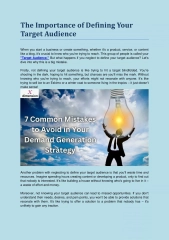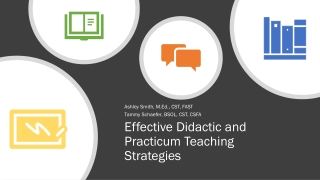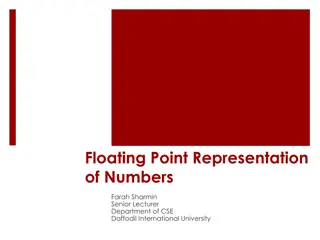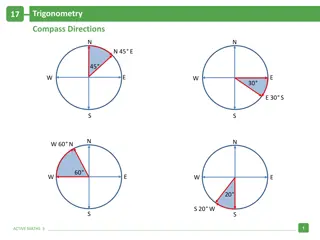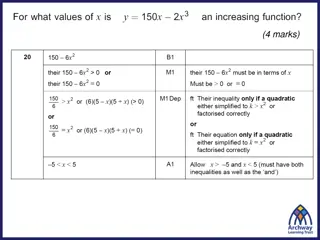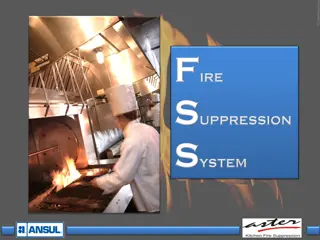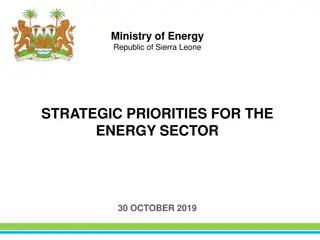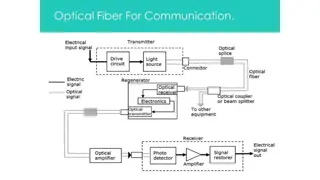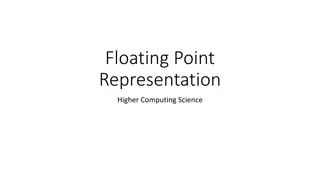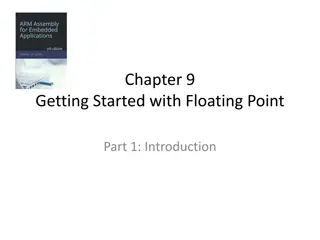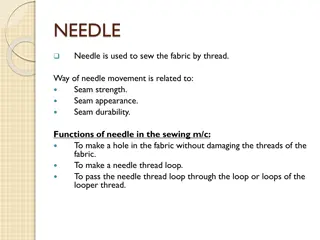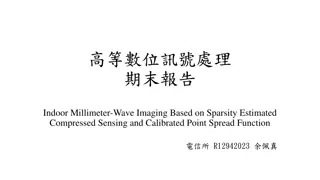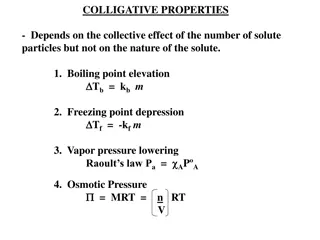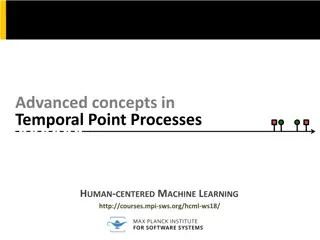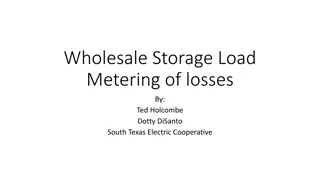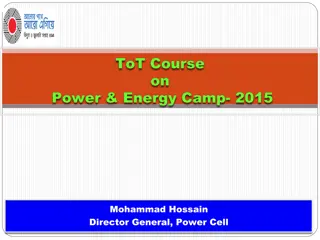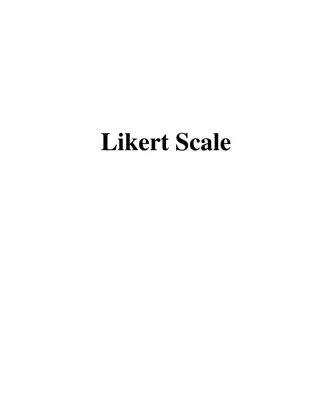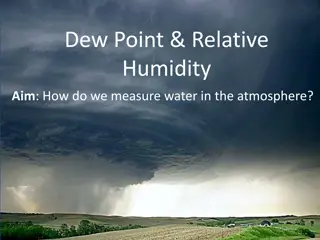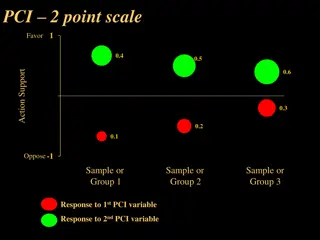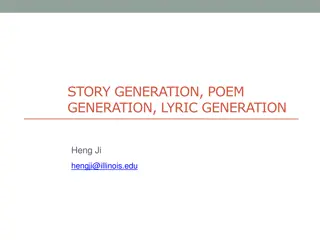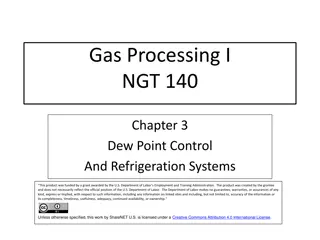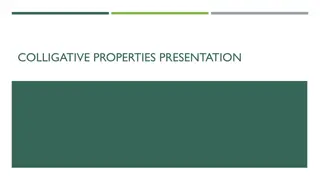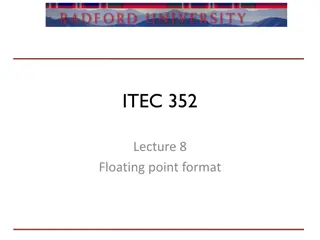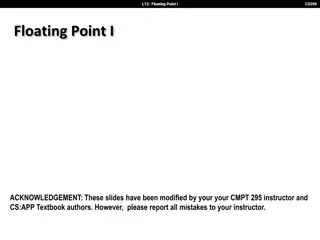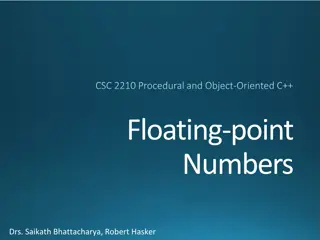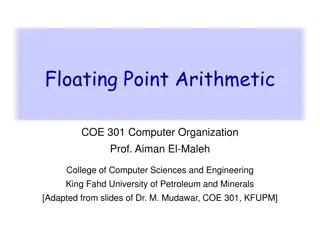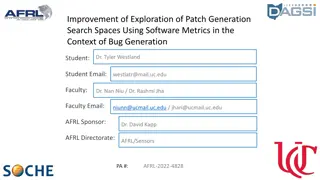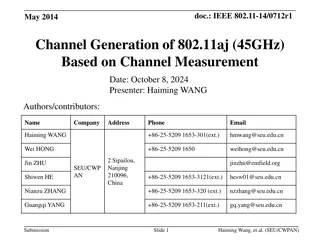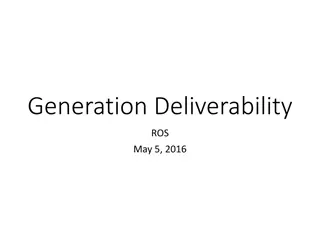Demand Generation Strategy
Executives in charge of demand generation must be well aware of the weaknesses that could undermine the effectiveness of their strategy. In this post, we'll discuss seven common mistakes to avoid while creating B2B demand. By being cognizant of these possible roadblocks and taking the necessary step
4 views • 2 slides
Understanding Different Generations in Education
Explore the characteristics and preferences of various generations in education, from the Baby Boomer Generation to Generation Z. Gain insights into their communication styles, educational approaches, and technological adaptability. Understand the unique dynamics of each generation to enhance teachi
4 views • 41 slides
Multiple Point Lightning Protection Accessories, Multiple Point, Electrolytic Co
We are a leading manufacturer, exporter and supplier of a wide range of Multiple Point Lightning Protection Accessories, Multiple Point, Electrolytic Copper Multiple Point, Earthing and Lightning Protection at very cheap prices for our clients from Mumbai, India.
1 views • 3 slides
Overview of DSW End Point Assessment Team Leader Level 3
DSW End Point Assessment Team Leader Level 3 provides a clear understanding of the assessment process, ensuring individuals comprehend why and when it occurs, responsibilities involved, and how DSW supports them. It covers topics such as what End Point Assessment entails, assessment design and deliv
1 views • 18 slides
Enhancing Connectivity - Point-to-Point Wireless Installation in New Jersey
Point-to-Point wireless installation involves establishing a direct wireless link between two fixed points, typically using directional antennas. This setup bypasses the need for physical cables, making it ideal for connecting remote locations, exten
2 views • 2 slides
Understanding Floating Point Representation of Numbers
Floating point representation is crucial in computer arithmetic operations. It involves expressing real numbers as a mantissa and an exponent to preserve significant digits and increase the range of values stored. This normalized floating point mode allows for efficient storage and manipulation of r
0 views • 12 slides
Trigonometry and Compass Directions Problem Solving
In this trigonometry problem, a ship travels from point A to point B and then to point C in specific directions. By applying the Pythagorean theorem, the distance from point C to A is calculated to be 7.2 km. The angle BCA is determined to be 34 degrees, and the direction of point C from A is found
0 views • 5 slides
Understanding Points of Inflection in Calculus
Points of inflection in calculus refer to points where the curve changes from convex to concave or vice versa. These points are identified by observing changes in the curve's concavity, and they are not always stationary points. A stationary point can be a point of inflection, but not all points of
0 views • 14 slides
Enhancing Information Retrieval with Augmented Generation Models
Augmented generation models, such as REALM and RAG, integrate retrieval and generation tasks to improve information retrieval processes. These models leverage background knowledge and language models to enhance recall and candidate generation. REALM focuses on concatenation and retrieval operations,
1 views • 9 slides
Comparison of 2nd vs 3rd Generation Fire Suppression Systems
The comparison highlights the evolution from 1st generation dry chemical agents to advanced 3rd generation systems like the Piranha Hybrid System, ensuring better fire protection in restaurants. It discusses the drawbacks of 2nd generation systems, emphasizing the need for improved fire suppression
1 views • 20 slides
Strategic Priorities for Sustainable Electricity Generation in Sierra Leone
The Ministry of Energy in Sierra Leone has outlined strategic priorities to ensure sustainable electricity generation and supply in the short, medium, and long term. Key actions include implementing an integrated electricity plan, identifying externally funded projects for power supply, and addressi
0 views • 19 slides
Overview of Point-to-Point Fiber Optic Communication System
Point-to-point fiber optic communication systems involve converting voice signals from a microphone into digital signals using a coder, transmitting light signals through a semiconductor diode laser over optical fibers, and decoding the signals back to analog for sound production. The system offers
0 views • 11 slides
Understanding Floating Point Representation in Binary Systems
In computer systems, decimal numbers are represented in memory using scientific notation. This involves moving the decimal point and using mantissa and exponent to maintain precision and range. The transition to representing numbers in binary involves multiplying by 2 to the power instead of 10. Uti
2 views • 22 slides
Introduction to Floating Point Data Types and Operations
This content delves into the fundamentals of floating-point data types, focusing on single-precision floating-point formats like float, excess-127, and their characteristics. It also compares float and int32_t data types, detailing the representation and conversion of values between them. The materi
0 views • 46 slides
Understanding the Functions and Components of Sewing Machine Needles
Sewing machine needles play a crucial role in creating strong, durable seams and enhancing the appearance of the final stitch. Components such as butt, shank, shoulder, blade, eye, scarf, point, and tip each serve specific functions in the sewing process. Needles are classified based on point types
0 views • 11 slides
Optimal Pathfinding in the Shortest Race
The problem involves finding the optimal point to touch a fence while racing from tree A to tree B to minimize the distance run. By reflecting point A in the fence line to point A' and joining A' to B, the point where AB crosses the fence line gives the solution. This approach is based on the princi
0 views • 25 slides
Comprehensive Overview of Sewage Treatment Plant Processes and Energy Generation
This seminar presentation dives deep into the world of sewage treatment plants, covering definitions, introduction, STP treatment stages (including primary, secondary, and tertiary treatments), energy generation through microbial fuel cells, and biogas generation. It emphasizes the importance of tre
0 views • 15 slides
Sparse Millimeter-Wave Imaging Using Compressed Sensing and Point Spread Function Calibration
A novel indoor millimeter-wave imaging system based on sparsity estimated compressed sensing and calibrated point spread function is introduced. The system utilizes a unique calibration procedure to process the point spread function acquired from measuring a suspended point scatterer. By estimating
2 views • 26 slides
Understanding Colligative Properties in Solutions
Colligative properties in solutions depend on the total concentration of solute particles present, impacting properties such as boiling point elevation, freezing point depression, vapor pressure lowering, and osmotic pressure. Boiling point elevation is directly proportional to the number of solute
1 views • 19 slides
Development of Attosecond Theory for Nobel Prize through Verilog Programming
Attosecond generation is a crucial technique for creating attosecond pulses by manipulating radiation waves. This research paper focuses on developing the Attosecond generation equation through Verilog programming and validating it using test programming techniques. The interface between equations,
0 views • 15 slides
McGill First Generation Orientation Event
The McGill First Generation Orientation event, organized by Campus Life & Engagement, took place on August 31st, 2021. The event highlighted the importance of supporting first-generation students and fostering allyship with Indigenous communities. It featured various sessions including introductions
0 views • 20 slides
Understanding Advanced Concepts in Temporal Point Processes for Human-Centered Machine Learning
Explore advanced concepts in temporal point processes through the lens of human-centered machine learning. Topics include marked temporal point processes, independent identically distributed marks, dependent marks, and mutually exciting marks. Learn about stochastic dynamical systems such as the Sus
0 views • 8 slides
Wholesale Storage Load Metering of Losses in Distributed Generation Battery Facility
Example system configuration in ERCOT involving a wholesale storage load metering system to track losses in a distributed interconnected generation battery facility. The system includes electrical storage systems, generation resources, and distribution generation components. Challenges arise in dete
0 views • 8 slides
Overview of Power Sector Growth and Expansion in Recent Years
In the last six years, the power sector has shown significant growth in terms of generation capacity, access to electricity, and reduction in system losses. The generation capacity has increased, transmission and distribution lines have expanded, and there has been a notable rise in per capita gener
0 views • 18 slides
Exploring Likert Scale and Survey Examples for Effective Data Collection
Dive into the world of Likert scale with examples for surveys covering agreement, relevance, frequency, importance, quality, likelihood, dichotomous scales, three-point scales, four-point scales, five-point scales, and seven-point scales. Understand the nuances of expressing opinions, preferences, a
0 views • 5 slides
Understanding Freezing Point Depression and Molality for Solutions
Introduction to molality and freezing point depression in solutions. Molality is a way to measure solution concentration, calculated using moles of solute and kilograms of solvent. By calculating the moles of NaCl in a salt solution and the mass of the solvent (ice/water), the molality can be determ
0 views • 9 slides
Understanding Humidity and Dew Point in Atmospheric Water Measurement
Relative humidity measures the amount of water vapor in the air compared to its capacity, influenced by temperature. Saturated air forms clouds at 100% humidity. Dew point is the temperature at which air becomes saturated, leading to condensation and cloud formation. By comparing air temperature to
0 views • 12 slides
Comprehensive Overview of Point Contrast Interview Scales
Explore a detailed comparison of various Point Contrast Interview scales ranging from 2-point to 9-point scales. Each scale reflects different levels of favor, action support, uncertainty, and opposition, along with sample responses. The scales provide a structured framework for assessing opinions a
0 views • 8 slides
Advancements in Text Generation and Comprehension Modeling
Cutting-edge research in coherent story generation, surface realization models, story ending generation, and animation generation is showcased. The models produce distribution over vocabulary and next token prediction for generating text and handling complex sentences seamlessly.
0 views • 40 slides
Nonparametric Tolerance Interval Approach to Immunogenicity Assay Cut Point Determination
This content discusses the importance of determining the cut point for immunogenicity assays to detect anti-drug antibodies (ADA) in large-molecule therapeutics. It highlights the need for well-developed and validated assays to ensure drug efficacy and safety. The approach involves multiple-tiered v
0 views • 26 slides
Gas Processing: Dew Point Control and Refrigeration Systems
Gas processing involves gathering raw gas from wells, passing it through various units like feed gas receiving, condensate stabilization, gas treating, dew point control, and refrigeration units to control liquid condensation and recover natural gas liquids. Dew point control helps prevent condensat
0 views • 26 slides
Understanding Colligative Properties in Chemistry
Colligative properties in chemistry depend on the amount and type of solute particles added to a sample, as well as the intermolecular forces at play. They include vapor pressure, boiling point elevation, and freezing point depression. Vapor pressure is the pressure exerted by a vapor on its surroun
0 views • 7 slides
Understanding Floating Point Numbers in Computer Science
Exploring the concepts of floating point format, normalization, conversion processes, and IEEE 754 standard for representing floating point numbers in computer systems. Learn about two's complement, excessive notation, and the components that make up a floating point number. Dive into examples of co
0 views • 18 slides
Understanding Floating Point Representation in Computer Science
Explore the significance of number representation in computer systems, from integers to real numbers and special cases like NaN. Delve into past incidents where flaws in floating-point representation led to costly errors, emphasizing the importance of precision and accuracy in computing. Learn about
0 views • 42 slides
Understanding Floating-Point Numbers in C++: IEEE Standard 754
Floating-point numbers are approximate representations of real numbers used in programming. IEEE Standard 754 defines how floating-point data is stored, including single and double precision formats. Learn about the sign, mantissa, exponent, biases, precision, overflow, and underflow in floating-poi
0 views • 25 slides
Understanding Floating-Point Arithmetic in Computer Organization
Exploring floating-point numbers and their representation in the IEEE 754 standard, including addition, subtraction, multiplication, and rounding. Learn about the significance of extra bits, the importance of normalization, and the impact of precision on floating-point values. Delve into MIPS floati
0 views • 74 slides
Exploration of Patch Generation Search Spaces using Software Metrics
This research focuses on improving the exploration of patch generation search spaces by utilizing software metrics in the context of bug generation. The study investigates the threat of malicious code insertion in third-party code construction for military projects and explores the concept of Patch
0 views • 8 slides
Channel Generation Process for IEEE 802.11aj (45GHz) Based on Channel Measurement
This presentation by Haiming Wang and team from SEU/CWPAN discusses the process of channel realization and generation in the 45 GHz bandwidth. It covers the generation of the channel impulse response, modeling of parameters, statistical measurements, and future work related to the 802.11ad standard.
0 views • 27 slides
Evolution of Generation Deliverability Criteria in ERCOT
ERCOT's journey towards enhancing generation deliverability criteria involves requests for transmission planning considerations, workshops on tool development, and discussions on economic criteria revisions. The focus is on addressing generation constraints at peak load conditions and assessing the
0 views • 7 slides
Understanding Point-to-Point Protocol (PPP) and Serial Communications in WANs
This content explores the Point-to-Point Protocol (PPP), outlining its components, establishment of sessions, authentication protocols, and configuration. It also delves into WAN connection options, serial and parallel ports communication, and serial communication standards for LAN-to-WAN connection
0 views • 31 slides
